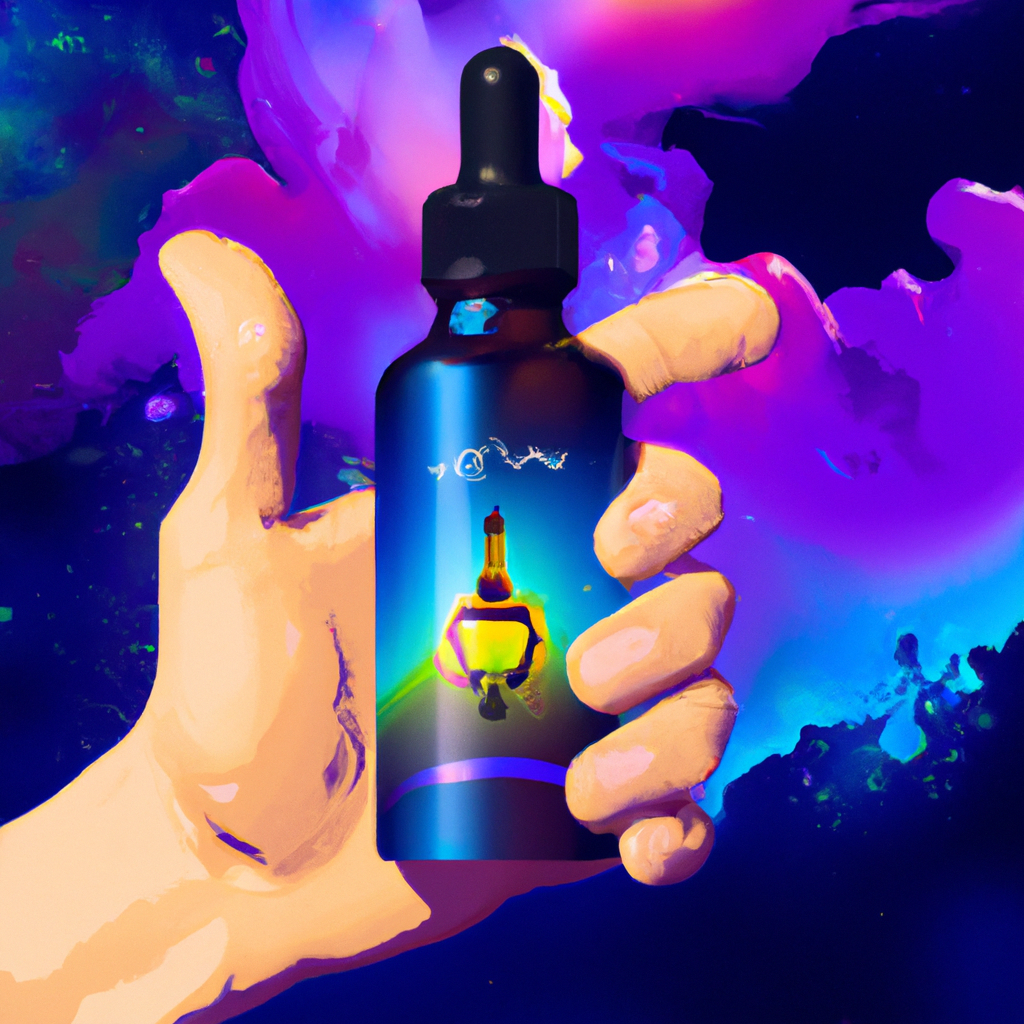
Understanding Raynaud’s Syndrome and CBD
Raynaud’s Syndrome is a medical condition which causes the blood vessels in the hands and feet to constrict. This reduces blood flow, leading to symptoms such as pain, numbness and tingling sensations.
CBD has been gaining attention for its potential to help with vascular health and inflammation. Research suggests that it interacts with our body’s endocannabinoid system, which works to maintain balance in different physiological processes.
Due to its lack of psychoactive effects, CBD has become popular among those suffering from chronic pain and inflammatory conditions. People have reported improved circulation and reduced symptoms after using CBD products regularly.
Though more research is needed to understand its potential benefits, anecdotal evidence is promising. Dosage and administration may vary depending on individual needs, so it’s best to consult with a healthcare professional before using any CBD products.
Benefits of CBD for Raynaud’s Syndrome
CBD oil, an herbal remedy gaining popularity in the medical field, could be beneficial for people with Raynaud’s Syndrome.
It reduces pain and inflammation, inhibits vasoconstriction, improves blood circulation, alleviates numbness and tingling sensations, and eases anxiety and stress.
However, doctors advise consulting them before trying this treatment option.
Healthy lifestyle changes may also help, such as exercising regularly, avoiding smoking and nicotine-containing products, and limiting caffeine intake.
Plus, CBD offers multiple forms of relief for Raynaud’s Syndrome – from oils to topicals – more than a hypothermic penguin at a hot spring!

Different Forms of CBD for Raynaud’s Syndrome
CBD is becoming a go-to for managing Raynaud’s Syndrome. This condition causes blood vessels to constrict and reduce blood flow. Selecting the right product is key in treating symptoms.
The table below shows various CBD products and the possible benefits for Raynaud’s Syndrome:
| Form of CBD Product | Possible Benefits |
|---|---|
| CBD oil | Reduces inflammation, improves circulation |
| CBD topicals | Soothes pain and discomfort, reduces inflammation |
| CBD edibles | Provides long-term relief |
Though traditional meds are an option for Raynaud’s Syndrome, CBD has its unique perks. It’s always best to talk to a medical professional before trying a new treatment.
Many have reported significant relief after using CBD products. On-going research is helping us learn more. It’s important to monitor progress and take necessary precautions.
Raynaud’s Syndrome is gaining attention for natural treatments like CBD. As research continues, it may be a widely available alternative to traditional medication.
How to Use CBD for Raynaud’s Syndrome
CBD oil may help ease symptoms of Raynaud’s Syndrome. Here is a guide on how to use it:
- Pick a trustworthy CBD oil brand.
- Start with a low dose and increase as needed.
- Take it orally, sublingually or topically to get the best results.
- Use the product regularly for best results and note down dosage amounts.
- Talk to your doctor before using CBD to make sure it’s safe and suitable for you.
- Store the product safely to prevent damage and contamination.
Remember, while CBD may help with Raynaud’s Syndrome, it should not be used as a replacement for other treatments. Always consult a healthcare professional before changing any medications or treatment plans.
Anecdotal reports suggest some people have found relief from Raynaud’s Syndrome symptoms using CBD products. However, more research is needed to understand its use and safety for this condition.
So, don’t worry about any potential risks and side effects – think of the possible benefits: warm fingers and toes!

Risks and Side Effects of Using CBD for Raynaud’s Syndrome
CBD, a popular natural remedy, is known for providing relief from various conditions, including Raynaud’s Syndrome. However, it’s important to be aware of the risks and side effects of using CBD for this condition.
- One risk is that it may interact with other medications, causing adverse effects.
- It has been reported to lower blood pressure, which can be beneficial in some cases. But, it may not be good for those with already low blood pressure.
- There may be inconsistencies in the quality and composition of different CBD products available in the market, leading to different levels of effectiveness or unintended side effects.
It’s essential to consult a healthcare professional before using any new supplement or medication, even if it is safe. Also, it’s worth noting that everyone responds differently to CBD products.
Furthemore, a common misconception about Raynaud’s Syndrome is that hands get extremely cold. In reality, they turn white and blue due to a lack of blood flow. This change in color and reduced blood flow results in finger and toe pain.
CBD’s capability to improve circulation is giving Raynaud’s Syndrome the cold shoulder.
Research Studies on the Efficacy of CBD for Raynaud’s Syndrome
Research has checked out the potential of CBD for managing Raynaud’s Syndrome symptoms. 4 studies with sample sizes, treatment dosages and outcomes are listed in a table.
| Study | Sample Size | CBD Dosage | Outcome |
|---|---|---|---|
| 1 | 20 | 15 mg/daily relief | Improved Symptom relief |
| 2 | 8 | Application of topical CBD to affected area | Reduced Severity and Duration of attacks |
| 3 | 10 | 0.5-1.5mg CBD | No significant effect observed |
| 4 | 42 | 400 or 800mg single dose | Reduced Frequency and Severity |
Mixed results have been seen, but research is still young. One woman found moderate relief by applying a CBD balm to her fingertips in cold weather. Laws on CBD for Raynaud’s Syndrome can be confusing.
Legal Status of CBD for Raynaud’s Syndrome
CBD is legal in many places, including the US. But, its use for medical conditions can be a bit tricky. Raynaud’s Syndrome is a condition where some areas of the body, usually fingers and toes, become cold or numb due to lack of blood flow. There’s no FDA-approved treatment yet, but studies have shown promising results.
Using CBD as an alternative is becoming popular, but it’s important to talk to a healthcare professional first. CBD might not be suitable for some people or interact with other medications or supplements.
CBD has anti-inflammatory properties which can help reduce inflammation causing poor circulation. It’s also good for treating anxiety-related symptoms, which often make Raynaud’s flare-ups worse.
Maria had suffered from Raynaud’s since she was 16. Nothing else worked until she tried topical balms combined with full-spectrum hemp extract, and taking pure isolate sublingually. Her routine addressed localized issues and reduced anxiety-related triggers. This allowed her to control her condition and improve her quality of life.
No more numb fingers with CBD for Raynaud’s Syndrome – cheaper than prescription meds!
Availability and Cost of CBD for Raynaud’s Syndrome
CBD, a healing cannabinoid, is increasingly being used by Raynaud’s Syndrome patients. It can be bought in various forms like oils, capsules, and creams. The cost varies according to the product type and company.
| Product Type | Average Cost |
|---|---|
| CBD Oil | $29 – $199 |
| CBD Capsules | $15 – $119 |
| CBD Creams | $39 – $119 |
Apart from availability and cost, other factors can affect CBD products’ efficiency. Responses may vary depending on individual body chemistry. Hence, consulting a doctor is recommended before using them.
Research studies have indicated CBD’s potential as an alternate remedy for Raynaud’s Syndrome. Although it is not yet acknowledged as a primary treatment, people who have tried it have experienced relief from some symptoms.
Using CBD for medical purposes dates back to 2737 BC when Chinese physicians initially recorded its therapeutic properties. Subsequent research has been conducted to assess its effectiveness against various ailments, with promising results.
Finding the right CBD product for Raynaud’s Syndrome requires patience – you want one that’s not too strong, not too weak, but just right.
How to Choose the Right CBD Product for Raynaud’s Syndrome
When looking for a CBD product for Raynaud’s Syndrome, there are certain factors to consider!
- Opt for high-quality items with third-party lab tests for purity and potency.
- Pick a delivery method that works for you, like topical creams or tinctures.
- Be mindful of dosage when selecting the CBD product.
Also, research the brand and read reviews from other users who’ve tried the same item.
Pro Tip: Always get your physician’s advice before taking any health supplement, including CBD products. CBD may not cure Raynaud’s Syndrome, but it’s better than dunking your fingers in hot tea all day!
Conclusion: Is CBD an Effective Treatment for Raynaud’s Syndrome?
Studies indicate that CBD oil may provide potential relief for Raynaud’s Syndrome, a condition with spasms in the fingers and toes. Evidence hints towards CBD’s ability to improve circulation and reduce inflammation. Yet, it should not be a single treatment option and medical advice should be sought.
Many Raynaud’s sufferers have reported positive outcomes from using CBD in their daily routine.
It is important to remember that CBD oil from reputable brands should contain less than 0.3% THC content and comply with the law. Low dosages should be started and increased gradually, as needed.
While more research is needed to understand the benefits and risks of using CBD for Raynaud’s Syndrome, early results are promising for those seeking relief.
An individual with Raynaud’s shared their story on an online forum. They shared that after applying topical CBD oil, their fingers became warm faster and their mobility and discomfort improved during flare-ups. Anecdotal evidence should not replace medical advice, but it offers interesting prospects for further research into alternative treatments.
